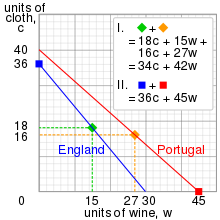 After eight years of deep diving on topics of questionable merit, ExUnoPlura finally has a facelift. I decided to go with a bold header image drawn from my black-and-white Sedona photographic explorations. I hope you will continue to enjoy the site and its many perspectives!… Read the rest
After eight years of deep diving on topics of questionable merit, ExUnoPlura finally has a facelift. I decided to go with a bold header image drawn from my black-and-white Sedona photographic explorations. I hope you will continue to enjoy the site and its many perspectives!… Read the rest
Author: Mark Davis
Against Superheroes, Unredacted
 NOTE: The following is the unredacted first chapter of Against Superheroes, reported here for completeness of the historical record. Footnotes as per the original.
NOTE: The following is the unredacted first chapter of Against Superheroes, reported here for completeness of the historical record. Footnotes as per the original.
Z3 begins with a fragment from Sinister’s earliest recollections of the initial transformation:
The fear began with the realization that my right arm was becoming unusually heavy. The weight of the bracelet had not changed dramatically, but it seemed that my arm was thickening and I feared I would lower my arm and the combined artifact would slip off, risking possible damage on the tile floor, and so I reflexively swung my left arm to stabilize my wrist. The blank, formless face of the figure was less tarnished than the rest and the dim bathroom light dancing across the visage gave it a strangely animated swirling quality. Soon the weight in my arm moved through my shoulders and into my neck. I staggered and dropped to my knees.
All Z collectives know this passage, but we disagree with Z2’s reading in Peregrinations of Mythic Specialness1 that the inclusion of the specific details concerning the type of light amongst the picturesque imagery in the passage is a deliberate effort on the part of later redactors to try to concretize a mythic passage. It is equally possible to simply conclude that the author was not concerned with the overall flow of the writing but instead intended to convey facts while capturing aspects of his internal state.
Thus, Z3 opens with the strongest hypothesis to date concerning the historicity of Sinister: we believe the evidence supports the conclusion that such a being did in fact exist and that his narrative connections to certain technologies similar to those present among the Collectives were an accurate portrayal of events that transpired, or at least rose to the greatest level of accuracy he could achieve.… Read the rest
Ethical Grounding and Numeracy
 I recently discovered the YouTube videos of Paulogia. He’s a former Christian who likes to take on young Earth creationists, apologists, and some historical issues related to the faith. I’m generally drawn to the latter since the other two categories seem a bit silly to me, but I liked his recent rebuttal of some apologist/philosopher arguments concerning the idea that ethics must be ontologically grounded in something. The argument is of the sort stoned high schoolers engage in—but certainly more carefully attended to—as I commented on the video.
I recently discovered the YouTube videos of Paulogia. He’s a former Christian who likes to take on young Earth creationists, apologists, and some historical issues related to the faith. I’m generally drawn to the latter since the other two categories seem a bit silly to me, but I liked his recent rebuttal of some apologist/philosopher arguments concerning the idea that ethics must be ontologically grounded in something. The argument is of the sort stoned high schoolers engage in—but certainly more carefully attended to—as I commented on the video.
So rather than pick on definitional minutiae, let’s take an expansive view of ethical reasoning and try to apply it to contemporary problems in society. For instance, while all societies have generally condemned murder in one way or another, how do we approach something like whether governmental control or regulation of environmental pollution and interaction is necessary or obligatory?
For the apologist/philosophers in the video, they seem to argue that scriptural claims places a grounding of ethics in a person’s “heart,” but then leave open how that gets translated into some kind of decision-making. At one point, one of the guys says he tends towards virtue ethics, while the other notes that some might see deontological ethics as the proper extension of that ontologically- and theistically-grounded impetus.
Let’s take a minimalist and observational approach to ethical behavior. We can perhaps tease out a few observations and then try to fit an explanatory theory onto that.
- Moral and ethical perspectives are and have been varied across people and time.
- There seems to be some central commonalities about interpersonal and group ideas about what is ethical and moral.
- Those commonalities have reflections in the natural world and among non-human species.
Overcoming Projection and Fear in the 2020s
 The end of 2019 has come with a soul-searching of sorts. While the politics of America is in an unexpected tribal divergence given the recent good economic performance combined with a world not in major conflicts, there are also undercurrents of religious change that many see as threatening to the established order. Religion in America is on the decline for the last decade, with young people, especially, indicating that they have no particular affiliation, and with the rise of atheism and related thinking in print and online.
The end of 2019 has come with a soul-searching of sorts. While the politics of America is in an unexpected tribal divergence given the recent good economic performance combined with a world not in major conflicts, there are also undercurrents of religious change that many see as threatening to the established order. Religion in America is on the decline for the last decade, with young people, especially, indicating that they have no particular affiliation, and with the rise of atheism and related thinking in print and online.
Let’s take a look at some of the most recent journalism on the topic. We will start with an example of how, I believe, it contributes to this decline, then segue to some sage survey work and science concerning how people regard these ideas.
The Washington Times is almost always filled with sloppy journalism, editorials, scholarship, and thinking, but here we have quotes suggesting that lack of religious affiliation is “pagan.” (Wrong: paganism was and remains highly religious). Or editorialization that overthrowing “blue laws” is linked to the decline of religious adherence (or, perhaps, a better separation of church and state). Shakespeare’s jokes require biblical understanding? Perhaps some, but many others required (pagan) mythological and historical understanding. The hit list goes on and on: evangelization like in the Age of Exploration? Swords out, anyone?
But this kind of sloppiness reflects mostly a desire to denigrate religious skepticism and project onto it the fears of the religious themselves, at least according to this survey from the Public Religion Reseach Institute, as reported in the Washington Post, which is the anti-Times for some. The Christian religious right sustains a fear of losing their religious freedoms that is not actually desired by atheists or the non-affiliated.… Read the rest
The Retiring Mind, Part V: Listening and Ground Truth
 Human hearing is limited in the range of frequencies that we can discern. Generally, at the high end, that limit is around 20kHz, which is a very high pitch indeed. But, as we age, our high frequency perception reduces as well, until we may very well have difficulty hearing 8kHz or understanding human utterances in old age. You can test your own approximate limits with a simple YouTube video that raises pitches quickly up through the spectrum. I’m capping out at just north of 13.5kHz using a cheap speaker attached to my monitor, and with normal but quiet ambient background noise.
Human hearing is limited in the range of frequencies that we can discern. Generally, at the high end, that limit is around 20kHz, which is a very high pitch indeed. But, as we age, our high frequency perception reduces as well, until we may very well have difficulty hearing 8kHz or understanding human utterances in old age. You can test your own approximate limits with a simple YouTube video that raises pitches quickly up through the spectrum. I’m capping out at just north of 13.5kHz using a cheap speaker attached to my monitor, and with normal but quiet ambient background noise.
The original design of the Compact Disc by Phillips and Sony used the 20kHz limit as guidance for the encoding of the digital information on the disks. Specifically, the input analog waveform was sampled at a resolution of 16 bits 44.1kHz, which gives a maximum volume range of 2^16 (96dB) and supports the Nyquist sampling theorem that requires double the maximum frequency of the input stream in order to reconstruct that stream.
And CDs were very good, exceeding the capabilities of vinyl or cassettes, and approaching the best magnetic tape capabilities of the time. They also had some interesting side-effects in terms of mastering by freeing bass frequencies that had to be shifted towards the central channel on vinyl in order to avoid shortening recordings unduly because of the larger groove sizes needed to render low frequencies.
But now, with streaming, we can increase our resolution still further. Qobuz and Tidal offer Hi-Res audio formats that can range up to 24 bit resolution at 192kHz sample rates. Tidal also promotes MQA (Master Quality Authenticated) format that may use lossy compression but preserves aspects of the original master recording.… Read the rest
Pro-Individualism, Pro-Social, Anti-Cousin
I tend towards the skeptical in the face of monocausal explanatory frameworks, especially for ideas as big as human history and the factors that shaped it. The risk of being wrong is far too high while the payoff in terms of anything more than cocktail banter is too low, be it as a shaper of modern policy or bearer of moral prerogatives.
So the widely covered discussion of Schulz, et. al.’s AAAS Science paper, “The Church, intensive kinship, and global psychological variation” (paywall) is a curiosity that admits to cautious reading at the very least. The hypothesis is that Catholic Church prohibitions on consanguine marriage that began in the medieval period in Western Europe explain globally unusual aspects of the psychology of the people of those regions. By banning cousin marriage even out to the 6th degree in many cases, the Church forced people away from tribal ideas and more towards neolocal family structures. That, in turn, led to pro-social attitudes based on social trust rather than family power, and towards more individualistic and independent psychologies overall.
The methodology of the study is fairly complex: look at the correlations between consanguine marriages patterns and psychological attitudes, then try to explain those correlations away with a wide range of alternative data patterns, like the availability of irrigation or proximity to Roman roads, and so forth. Data experiments that look at Eastern Orthodox versus Western Church differences, or even between northern and southern Italy are used to test the theory further.
In the end, or at least until other data supervenes, the hypothesis stands as showing that reducing cousin or similar marriages is a “causal channel” for these patterns of individualism and social trust.… Read the rest
Forever Uncanny
 Quanta has a fair round up of recent advances in deep learning. Most interesting is the recent performance on natural language understanding tests that are close to or exceed mean human performance. Inevitably, John Searle’s Chinese Room argument is brought up, though the author of the Quanta article suggests that inferring the Chinese translational rule book from the data itself is slightly different from the original thought experiment. In the Chinese Room there is a person who knows no Chinese but has a collection of translational reference books. She receives texts through a slot and dutifully looks up the translation of the text and passes out the result. “Is this intelligence?” is the question and it serves as a challenge to the Strong AI hypothesis. With statistical machine translation methods (and their alternative mechanistic implementation, deep learning), the rule books have been inferred by looking at translated texts (“parallel” texts as we say in the field). By looking at a large enough corpus of parallel texts, greater coverage of translated variants is achieved as well as some inference of pragmatic issues in translation and corner cases.
Quanta has a fair round up of recent advances in deep learning. Most interesting is the recent performance on natural language understanding tests that are close to or exceed mean human performance. Inevitably, John Searle’s Chinese Room argument is brought up, though the author of the Quanta article suggests that inferring the Chinese translational rule book from the data itself is slightly different from the original thought experiment. In the Chinese Room there is a person who knows no Chinese but has a collection of translational reference books. She receives texts through a slot and dutifully looks up the translation of the text and passes out the result. “Is this intelligence?” is the question and it serves as a challenge to the Strong AI hypothesis. With statistical machine translation methods (and their alternative mechanistic implementation, deep learning), the rule books have been inferred by looking at translated texts (“parallel” texts as we say in the field). By looking at a large enough corpus of parallel texts, greater coverage of translated variants is achieved as well as some inference of pragmatic issues in translation and corner cases.
As a practical matter, it should be noted that modern, professional translators often use translation memory systems that contain idiomatic—or just challenging—phrases that they can reference when translating new texts. The understanding resides in the original translator’s head, we suppose, and in the correct application of the rule to the new text by checking for applicability according to, well, some other criteria that the translator brings to bear on the task.
In the General Language Understand Evaluation (GLUE) tests described in the Quanta article, the systems are inferring how to answer Wh-style queries (who, what, where, when, and how) as well as identify similar texts.… Read the rest
Educational Funding Opportunities!
My wife and I are pleased to announce the fifth year of the James Davis and Wirt Atmar Memorial Current Use Scholarship at New Mexico State University. This scholarship provides around five students in the STEM fields (Science, Technology, Engineering, and Math) with tuition to help them achieve their educational dreams.
You can find the scholarship through the slightly hard-to-navigate NMSU Scholarship portal (Search for “davis” or “atmar”).… Read the rest
¡Reconquista!
 Pick up the Kindle version of ¡Reconquista! at Amazon. A paperback version is in the works. There is also reconquista.pub that has all the books and more!… Read the rest
Pick up the Kindle version of ¡Reconquista! at Amazon. A paperback version is in the works. There is also reconquista.pub that has all the books and more!… Read the rest
The Illiberal, Openness, and Oppression
 Continuing on with my fascination with intellectual conservatism (just removed denigrating scare quotes at the last minute), Sohrab Ahmari vs. David French is a curious anomaly to me, though it may have been always lurking below the surface. Certainly, going back to the Moral Majority, the desire of conservatives to have their version of Christianity play a greater role in US governance has been with us in terms of voting patterns and cultural preferences, but the notion that among the intelligentsia there was a desire for some kind of Christian Dominionism or at least greater control of the public square is not a perspective I’ve encountered. Instead, there were more targeted approaches like criticizing Roe v. Wade on the basis of constitutional arguments and legal ideas, or working towards expanding tax-dollar flows to home schoolers or other select (I originally wrote “fringe” here, but need to work on my neutral voice language that ebbs and flows) religious ideas. The religious deserved to not be disregarded in the face of cultural drift.
Continuing on with my fascination with intellectual conservatism (just removed denigrating scare quotes at the last minute), Sohrab Ahmari vs. David French is a curious anomaly to me, though it may have been always lurking below the surface. Certainly, going back to the Moral Majority, the desire of conservatives to have their version of Christianity play a greater role in US governance has been with us in terms of voting patterns and cultural preferences, but the notion that among the intelligentsia there was a desire for some kind of Christian Dominionism or at least greater control of the public square is not a perspective I’ve encountered. Instead, there were more targeted approaches like criticizing Roe v. Wade on the basis of constitutional arguments and legal ideas, or working towards expanding tax-dollar flows to home schoolers or other select (I originally wrote “fringe” here, but need to work on my neutral voice language that ebbs and flows) religious ideas. The religious deserved to not be disregarded in the face of cultural drift.
It’s worth noting that using the US Constitution as a touchstone for bolstering protections for the religious seems to most of us as a secular appeal rather than a scriptural or theological one. Such an approach squares nicely with our increasing defense of the rights and freedoms of groups previously marginalized or discriminated against. Yet part of the right (Ahmari and a pastor named Doug Wilson, at least; French is their foe) sees a desire for greater cultural and political control as actually rooted in that legal basis. After all, if reason is intrinsically derived from their god, then the reason in the American Experiment is always and inextricably tied to that god.… Read the rest